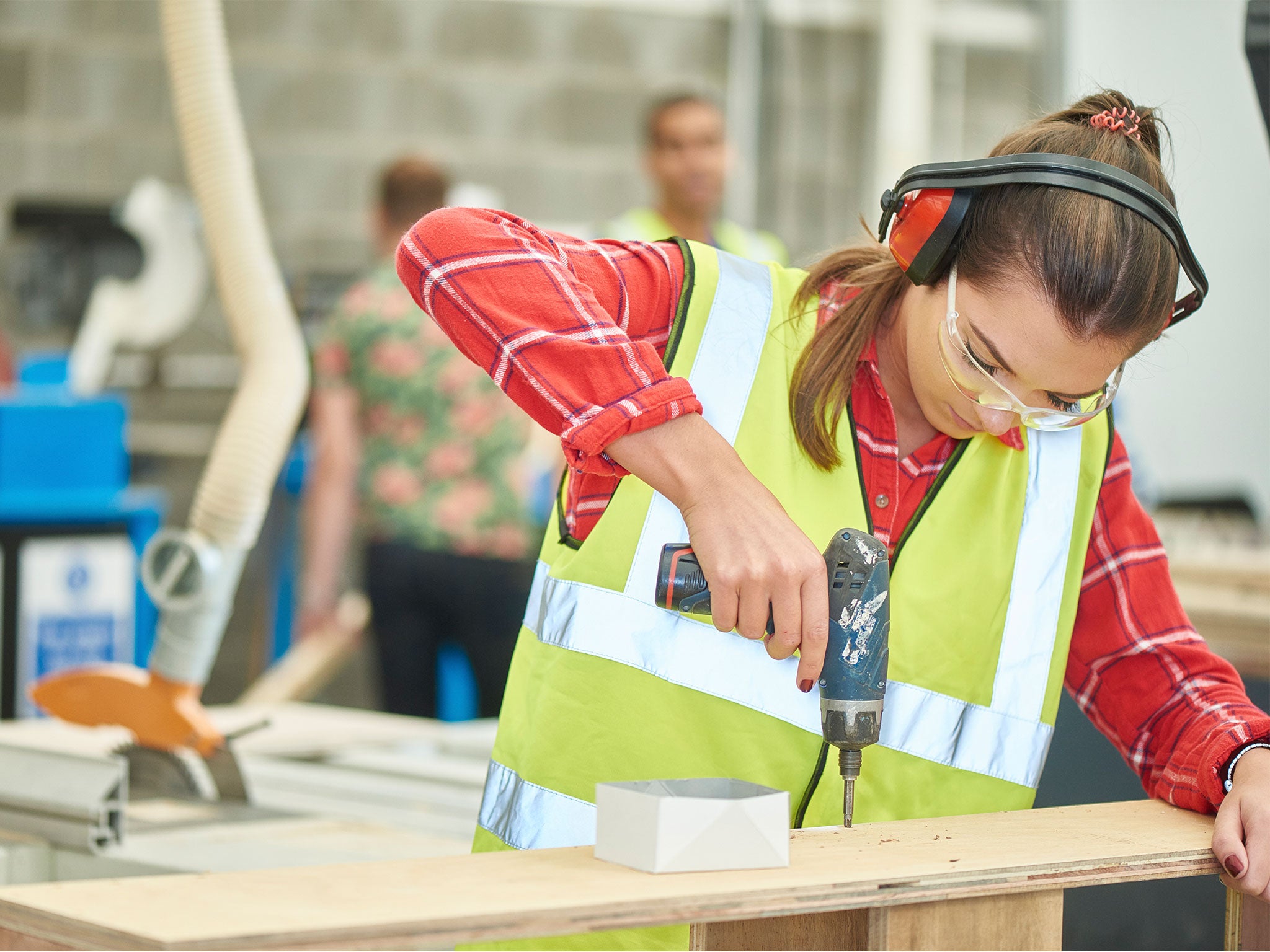Two in five apprentices spending more to complete apprenticeship than they earn, finds study
Women particularly hard hit as they face an eight per cent gender pay gap, research shows

Two in five apprentices are spending more money completing their apprenticeship than they earn, with women facing an eight per cent gender pay gap, new research shows.
A survey of 500 apprentices in the UK, who can be paid as little as £3.50 an hour, found that after paying for work clothes, travel and childcare, many have no money left to live on – with more than half struggling to cover basic living costs and transport to work.
The findings, published by the Young Women’s Trust, show that many were put off doing an apprenticeship altogether because it wasn’t financially viable.
While the Government strives to create three million apprenticeships by 2020 under a £2bn-a-year scheme, the latest official statistics show that the number of people starting apprenticeships has fallen.
Earlier this year, The Independent revealed that young people from better-off families were taking up most of the new apprenticeships, with low-income families are underrepresented on the programme.
The situation is harder for young women apprentices, who earn less and are more likely to have childcare costs. On average male apprentices earn £7.25 an hour, compared to women’s £6.67 – an annual difference of more than £1,000.
Pay differences are often due to gender segregation, which sees women going into sectors that pay less. For every woman starting an apprenticeship in engineering there are 25 men, and engineering apprentices are paid on average £289 a week.
Women are more likely to go into sectors like hairdressing and childcare, where the average weekly pay is £161 and £206 respectively, according to the Young Women’s Trust.
The research also finds that parents especially are struggling, with three in five apprentices with children saying their apprenticeship costs more than they earn. A lack of part-time and flexible apprenticeships means many struggle to fit their family around work, with 36 per cent of apprentices receiving some form of state benefit while completing their training.
The Young Women’s Trust is calling for the Government to impliment a number of recomendations to make apprenticeships work for women, including significantly increasing the apprentice minimum wage, providing bursaries to support young people to train in key sectors and providing more apprenticeships on a flexible and part-time basis.
The charity also recommends that there should be more work with local authorities to ensure apprentices are able to access childcare support even when working part-time, including ensuring local provision is adequately funded and available.
On the stark gender gap in apprenticeship pay, Dr Carole Easton OBE, chief executive Young Women’s Trust, said: “If the Government is to meet its target of creating three million apprenticeships by 2020 and plug the UK’s skills gap, it must take action to make apprenticeships work for young women.
“Young women can struggle to start and stay in apprenticeships due to low pay, a lack of support and gender stereotypes that shut them out of vital sectors like construction and engineering.
She said the charity would like to see clear pathways made available to young people with low or no qualifications, so they can start apprenticeships and progress to the higher levels.
“Much greater provision of part-time and flexible apprenticeships would also help young mothers and carers in particular, who often have to balance care with work, to start and stay in apprenticeships,” Dr Easton added.
“The Government must also raise the apprentice minimum wage if it is serious about supporting more young people into apprenticeships. Lots of young people tell us they can’t afford to do an apprenticeship; the £3.50 an hour minimum wage barely covers the bus to work, let alone bills and rent."
A Government spokesperson said: “Our number one priority is to help young people secure work while gaining experience and apprenticeships do just that, often leading to higher paid jobs in the future. That is reflected in the minimum wage rate structure, with rate rises in April 2017 giving apprentices their second pay rise in just six months.
“The Government wants to see more girls in apprenticeships in higher-paying sectors like engineering and has launched funding schemes in schools to increase female take-up of subjects like science, technology and maths.
Join our commenting forum
Join thought-provoking conversations, follow other Independent readers and see their replies
Comments